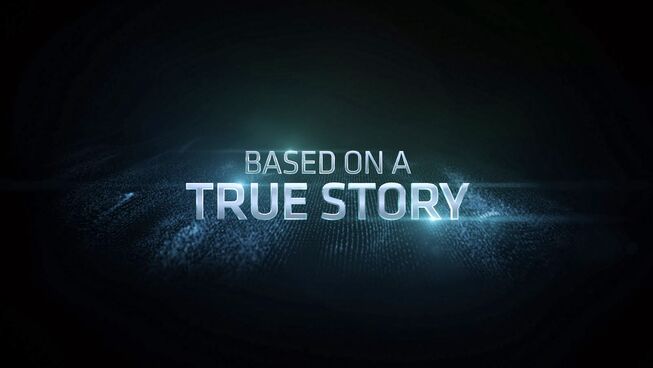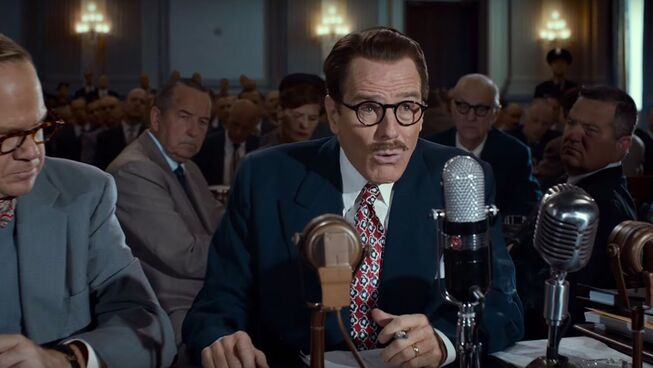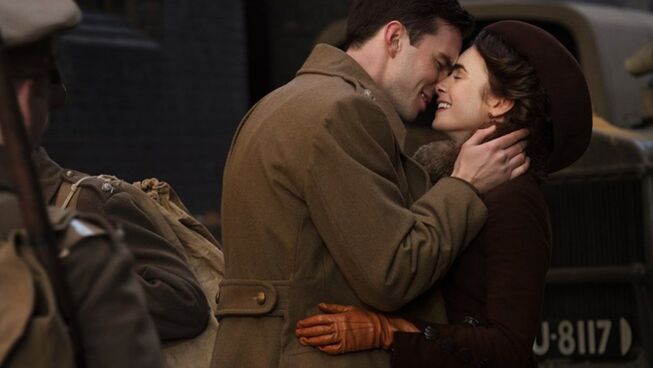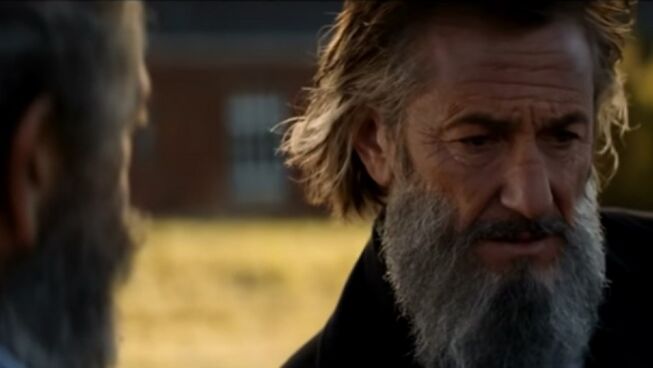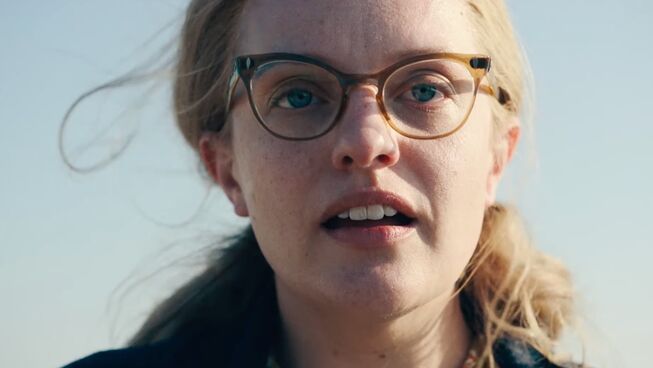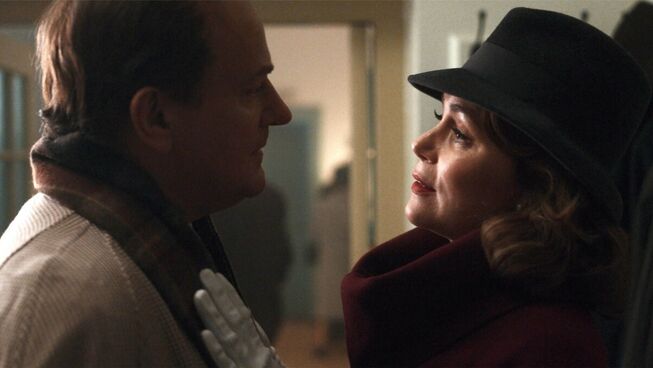
2.5 out of 5 stars
Over the past 50 years, most households with children worldwide have a favourite Roald Dahl (Hugh Bonneville) book or film. From Charlie and the Chocolate Factory to Matilda, the legendary author has managed to weave his way into multiple generations with his twisted children’s tales. Yet, most did not realise that he had been married to Academy Award-winning actress Patricia Neal (Hud, Breakfast at Tiffany’s) for over 30 years. A union that endured the extremes of life, but none worse than the loss of their eldest child, Olivia.
Even though their story has been told throughout the years, this latest biopic focuses on the years surrounding this tragic event. Neal (Keeley Hawes) had established an impressive career in Hollywood. Still, she chose to live in the chilly English countryside with her family. Meanwhile her husband had a budding career as a children’s author, but had yet to break through to become the world-famous writer he would later become. As he scribbled out his latest creation about a boy invited to a chocolate factory, he would take breaks from this imaginary world to take long strolls with his seven-year old daughter, which made her untimely passing even more jarring for the entire family.
As each of the Dahls worked through their grief, Roald tried to continue his book and Patricia continued to get offers from the film studios. Their marriage and children all had to work through the pain that all were enduring. When Neal receives a script of a lifetime with a film starring Paul Newman (Sam Heughan), she decides to take the job that will be filmed in America. Dahl would need to decide whether to stay alone in England or join his family and support his wife in this potentially career-defining opportunity.
The marriage of two renowned artists has to be irresistible to writers and filmmakers. Especially with the well-documented tragedies they experienced, which many do not even get a mention in this film. Yet, their grief-laden journey does make for intriguing considerations and the lead actors seem well suited to fulfil their roles. Bonneville and Hawes manage to develop the chemistry between this unlikely pair while showing their love for their family and their careers. Which sets up the heartbreaking moment of Olivia’s death as a life-changing event for all of them.
Unfortunately, the rest of the story has the feel of the dark and dreary English countryside. This might be true to the family’s experience, but it does not make for compelling cinema. Even though the historic nature of the writing of Dahl’s most celebrated work and Neal’s award-winning performance in Hud do make for fascinating history, they all come off a bit formulaic on the big screen. A journey back that provides the behind-the-scenes elements of their compelling lives together. Still, this had the feel of a quality BBC television production, outside of some foul language, instead of a cinematic release.
REEL DIALOGUE: How do we respond to death?
The Lord is near to the brokenhearted and saves the crushed in spirit. - Psalm 34:18
Death is one of the certainties of life, but we all respond differently when confronted with it. Fortunately, God does not leave people without an answer during these times of grief. He is a God who can indeed weep with those who are weeping, because his Son died, too. He is near to the brokenhearted and can provide hope during a time that will inevitably affect everyone in one way or another.



